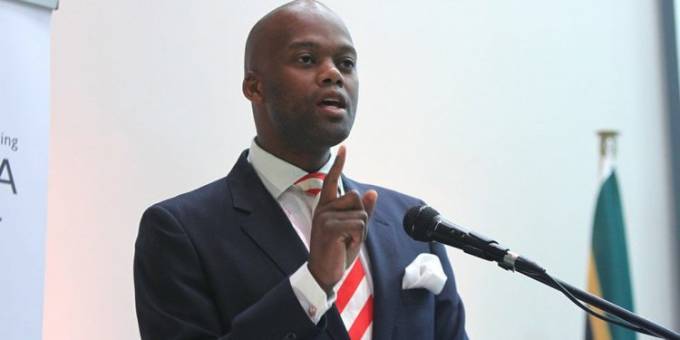Re-engagement drive bearing fruit

Lonias Rozvi Majoni Correspondent
The historic visit to Scotland, upon invitation, by President Mnangagwa, is a clear indication of Zimbabwe’s maturing re-engagement process and resilience in the fight against global isolation.
Spearheaded by the nation’s number one diplomat, Zimbabwe continues to reach milestones regarding her foreign affairs.
While those in the opposition tried to downplay the significance of the invitation, political neutrals appreciated the significance of the visit, coming as it did after more than two decades of isolation.
But the invitation to attend the climate conference in Scotland cannot surely be viewed in isolation of the tremendous efforts undertaken by the Second Republic to engage and re-engage all countries of the world.
In the New Dispensation ushered in by the resignation of founding leader Cde Robert Mugabe, Zimbabwe has taken a new foreign policy thrust anchored on economic development and catalysed by the mantra: “Zimbabwe is Open for Business” and that it is a “friend to all and an enemy to none.”
It was thus not a coincidence that the new portfolio of the Ministry of Foreign Affairs had an added mandate of international trade.
This was a conscious decision taken by President Mnangagwa to ensure that the country catapults itself out of economic stagnation that characterised much of the First Republic, particularly after the country embarked on the revolutionary land reform programme.
That conscious decision started bearing fruits as countries that were previously adversarial began to mellow.
Indeed, the New Dispensation highlighted to the world that it was prepared to institute reforms that will buttress and entrench the democratic environment in the country.
We, therefore, need to view the recent historic diplomatic mission to Scotland as part of the mellowing and appreciation of Zimbabwe’s development and adjustments to the evolving global community ravaged by the Covid-19 pandemic.
After decades of isolation from the global terrain, President Mnangagwa’s diplomatic prowess through the Zimbabwe is Open for Business mantra has unlocked various opportunities since the inception of the New Dispensation.
However, it is the recent visit to Scotland by the President which clearly indicates a ripening process of the re-engagement drive.
One might ask: What could be so important about this visit to Scotland?
The answer is so obvious. In the current epoch, no State can exist perfectly isolated from the global village.
Without compromising her values and national interests, Zimbabwe through the brilliant captaincy of President Mnangagwa has managed to mend relations with previously known arch rivals in the promotion of peace and development.
Zimbabwe is not the only country or the first nation making diplomatic milestones of this nature.
Cuba took the same path a few years ago, China is also making similar strides and the meeting between President Vladimir Putin and Joe Biden a few months ago is another example which shows the commitment by world leaders to improve diplomatic relations to maintain global peace and spur development for the benefit of humanity.
The Scotland visit by President Mnangagwa, marked by a resoundingly blissful welcome by Scottish people has been regarded as one of the celebrated diplomatic achievements by the Head of State.
Among other notable things, this meeting further paved way for the revolutionary leader to meet other world leaders like British Prime Minister Boris Johnson, members of the British Royal Family, American President Joe Biden, among others.
While most of the encounters were casual, it is the ability of President Mnangagwa to be able to engage and show the world that he is a cut from a different cloth.
His presence and demeanour at the conference managed to send a clear message to the world about Zimbabwe’s keenness to be treated as an equal member of the community of nations.
It is true that some countries have had to bandwagon themselves with others in the imposition of economic sanctions on Zimbabwe without a clear understanding of the issues at hand.
That Britain mobilised its allies in the European Union to impose sanctions on Zimbabwe because of its bilateral tiff with the later remains true. That the United States imposed sanctions on Zimbabwe in order to cajole the leadership to rescind on the land reform programme is also true.
In essence, Zimbabwe has been punished for daring to undertake a comprehensive land reform programme meant to correct a historical iniquity brought about by colonialism.
Zimbabwe, according to the US, posed a threat to the country’s foreign policy in that what it had done was a bad example to the African continent and all other countries endeavouring to correct historical iniquities brought about by colonialism.
But now that the land reform is past us, it is time that the Americans and the British reconsider their position on sanctions.
While the argument has been that the sanctions are targeted, the truth is that economic embargoes have over the years caused untold suffering to the general populace.
In the era of the Covid-19 pandemic, maintaining economic sanctions on a country because of bilateral differences is not only inhuman, but flies in the face of countries that regard themselves as the paragon of democracy.
In the final analysis, the visit by President Mnangagwa to Scotland managed to break some ice as he engaged with critical global players, including bringing to them the benefits of engaging and establishing open diplomatic ties rather than maintaining adversarial relations.










Comments